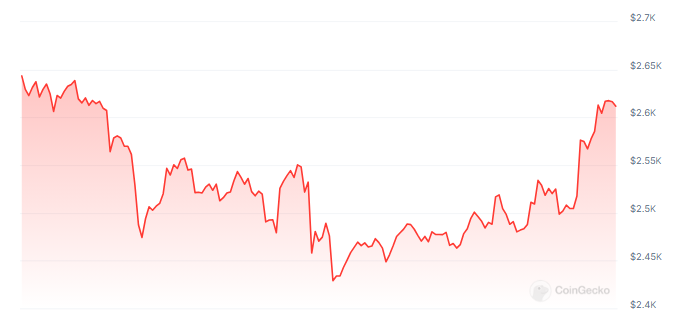Throughout its journey, Ethereum has emerged as a noteworthy contender to Bitcoin, vying for recognition in technology, innovation, and real-world applications. While Bitcoin is often likened to “digital gold,” Ethereum can be considered its “digital silver.” Nevertheless, Ethereum hasn’t been exempt from criticism; detractors have suggested it may not maintain its popularity. Recently, Justin Bonn took to Twitter/X to declare that Ethereum is “cooked.”
Justin Bons, the founder and Chief Investment Officer of Cyber Capital, expressed his opinions regarding Ethereum’s future, layer 2 fundraising, and token economics, generating significant conversation on social media platforms. His candid critique focusing on issues of self-interest and centralization has ignited discussions about the long-term viability of Ethereum.
Bons’ comments on Twitter/X garnered a wide array of reactions from cryptocurrency enthusiasts, with supporters and challengers weighing in on his arguments.
1/9) Ethereum is cooked
No one is extending L1 of ETH anymore as it has been corrupted by L2 VC funding and tokens. They won’t allow it!
That’s why there’s no hope left for ETH.
Driving into irrelevance the quasi-religious word salad justifying Bitcoiner mediocrity:
— Justin Bons (@Justin_Bons) October 28, 2024
Bons believes Ethereum is now ‘irrelevant’
In his Twitter/X thread, Bons outlined multiple reasons he believes the Ethereum blockchain is “cooked” and could spiral into irrelevance. He suggested that self-interest has taken the lead, emphasizing a growing focus on layer 2 (L2) chains rather than enhancing the base layer (L1).
Bons elaborated that although Ethereum initially represented a promising blockchain, recent trends could lead it toward obscurity. He specifically called out the L2 chains that can exert censorship, misappropriate, and freeze users’ funds. According to him, these L2 solutions are becoming more fragmented and centralized, weakening overall user experiences and positioning Solana as a more favorable alternative.
Currently, Ethereum’s market capitalization stands at an impressive $314 billion. Chart: TradingView.com
Transitioning from Uniswap to Unichain
Additionally, Ethereum is encountering challenges as it shifts towards its own blockchain, known as Unichain, in collaboration with Uniswap. On October 10 of the previous year, Uniswap’s parent organization, Uniswap Labs, announced the debut of this blockchain. Designed as an advanced blockchain or rollup on Ethereum, it aims to distribute its profits among users who stake their UNI tokens.

Last week, Ethereum’s price experienced a decline. Source: CoinGecko
This new development could pose a serious financial setback for Ethereum as it might lose a vital revenue stream. In the past, a significant portion of Uniswap’s fee earnings benefited ETH holders. Michael Nadeau noted that Uniswap generated around $1.3 billion from fees across five blockchains.
However, under the new model, Uniswap and its token holders will receive “zero” earnings from this revenue. In contrast, Ethereum validators have historically earned over $368 million for staking their ETH to secure the platform. With the introduction of Unichain, Uniswap will redirect this value to its token holders.
If you think L2 is bearish on $ETH, you should at least realize that they are very bearish on Alt L1.
At the very least, L2 requires you to pay for your blobs once your goal is reached, and they all use $ETH as their primary on-chain currency.
L2 is also the fastest growing…
— AdrianoFeria.eth

(@AdrianoFeria) October 28, 2024
Ethereum receives community backing
While Bons’ comments garnered a handful of supporters, numerous users on Twitter/X defended the Ethereum project. For instance, AdrianoFeria.eth countered Bons by stating that he was detached from reality. He asserted that the L2 chain should not negatively impact ETH L1, but rather highlight concerns for other L1s.
He went on to argue that Solana is not the fastest-growing chain and emphasized Ethereum’s continued success, crediting partnerships with various institutions. Some observers criticized Bons for his apparent bias and ongoing adversarial stance toward certain cryptocurrencies.
Industry insiders suggest that Uniswap’s recent announcement complicates predictions about Ethereum’s future. Sasha Ivanov from Waves mentioned that the transition may not be finalized until at least year’s end. The repercussions will largely depend on whether Uniswap successfully integrates with the Ethereum blockchain or other smart contract-compatible chains.
Featured image by Token Metrics, charts courtesy of TradingView




